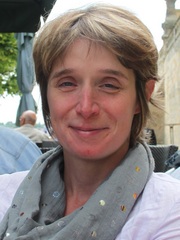PhysioLab: The Physiologus in the Digital Laboratory
The Earliest Stage of a Multilingual Tradition
ANR-DFG Research Grant
2025–2028
The project aims at a digital critical edition of the oldest versions of the Physiologus in Greek and Latin and their synoptic presentation together with the Syriac and Armenian versions.
PhysioLab is a collaborative project funded by the DFG (Deutsche Forschungsgemeinschaft) and the ANR (Agence Nationale de la Recherche, France). The PIs are Caroline Macé at the CSMC and Emmanuelle Kuhry at the IRHT (Institut de Recherche et d’Histoire des Textes) in Paris. The two researchers have led together a French-German Exchange Programme on the Physiologus financed by the DAAD (Deutscher Akademischer Austauschdienst) and Campus France in 2024–2025 [https://www.irht.cnrs.fr/fr/recherche/les-programmes-de-recherche/le-physiologus-multilingue].
The Physiologus, originally written in Greek before the end of the third century ce in Egypt, is a fascinating collection of moralistic animal stories. It was translated into Arabic, Armenian, Coptic, Ethiopian, Georgian, Latin, Syriac, Slavic languages, and, from Latin, into Icelandic, Old English, Old High German, and most vernacular languages of Western Europe.

Although originally a small book written in a poor language, the Physiologus soon became a ‘world-book’ whose influence on medieval and modern imagination, culture, and art is immeasurable. Many of the stories are still known today, such as the pelican-mother offering her own blood to resurrect her chicks or the lion-father breathing life into his stillborn whelps.

In order to understand the spectacular development of the Physiologus, it is necessary to gain a precise knowledge of the work in its early stages. Preparatory studies have demonstrated the importance of the Latin, Armenian-Georgian, and Syriac versions for the reconstruction of the oldest Greek textual form, which is faithfully preserved in only one Greek manuscript [doi: 10.1484/M.IPM-EB.5.120467].
The complexity of the relationships between the original Greek text and its translations makes it necessary to use the most up-to-date methods and tools in the field of digital humanities to recover the oldest form of the Physiologus. This requires the development of a methodology specific to a historical-critical approach to multilingual textual traditions.
Contact at CSMC

University of Hamburg
Centre for the Study of Manuscript Cultures
Warburgstraße 28
20354 Hamburg
Office
Room: 3008
Contact
Tel: +49 40 2395-29835
Email: caroline.mace"AT"uni-hamburg.de
